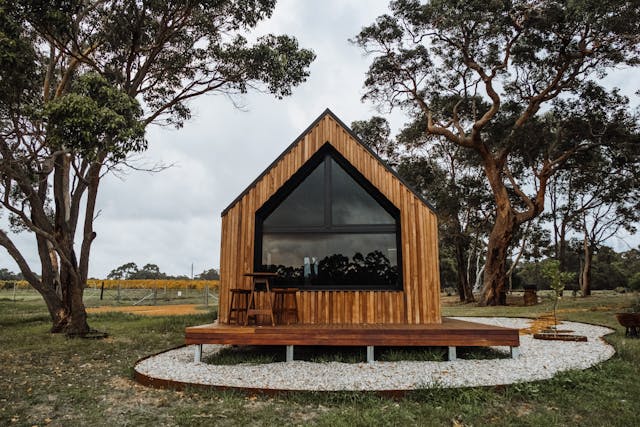
A Guide to Selling Your Buy-To-Let Property
Thinking of selling your buy-to-let? Learn how to time the market, manage tax and maximise

You have probably heard about modular homes before, but what are they? Are they different from prefab homes, and how do they perform as an investment property? In this blog we will look at the definition of modular homes, how they could change the UK housing market, and whether modular homes are a good investment.
Table of Contents
ToggleWhereas conventional houses are built entirely on-site using traditional building materials, a modular home is built in modules in an off-site factory and transported to the building site for assembly. The different modules fit together like building blocks for ease of construction. Modular homes are built using modern methods of construction, or MMC. Modular buildings can include houses, apartment blocks or other types of buildings, including commercial and office buildings.
Modular buildings are more popular in other countries such as Sweden and Japan, although interest is growing in the UK for MMC including modular homes. They could help solve the UK housing shortage as well as provide a cheap and fast construction method for essential public buildings like hospitals and schools. In fact, MMC helped to deliver 2 temporary hospital facilities in 12 days during the COVID-19 pandemic. A report by HTA Design champions modular homes, saying that they could create 50,000 jobs, reduce the carbon footprint of construction by 40% and help solve the UK’s housing shortage.
A building is considered prefabricated if any part of it is manufactured off-site. A modular building features modules, e.g. rooms that are completely fabricated off-site and then connected to other modules on-site. So all modular homes are prefabricated, but not all prefabricated homes are modular. Prefab is used as more of an umbrella term for houses that use any kind of off-site construction. Some people do use the two terms interchangeably, but for this article, we will refer to buildings that are at least 70% constructed off-site as modular homes.
Modular homes, prefab homes and others that use a modern method of construction have their own unique benefits and drawbacks – see below for the main pros and cons of modular homes.
Modular homes can be a great investment, as they provide a lot of benefits such as being faster and cheaper to build than traditional homes, increased sustainability and efficiency. As long as you have secured a good deal on a mortgage, obtained planning permission and all required permits in advance, and are working with a reputable modular housing provider, a modular home could be a great investment.
The UK needs more housing and modular homes could be a great way of meeting this demand quickly and relatively cheaply, as they have done in other countries. Traditional housing costs are rising thanks to traditional builders ageing out of the profession and inflated costs of construction materials. Modular homes also meet the need for increased sustainability in the construction industry. As with any property investment though, take the time to do research into the local housing market, demand for properties in the area, and other factors that could affect your investment. Also, consider how investing in modular homes fits in with your short-term and long-term financial goals.
If you are interested in property investment, whether in traditional or modular homes, then you can learn from our team of experts at one of Assets For Life’s FREE property events – just click the link below to find out more or sign up today.
You May Also Be Interested In...

A Guide to Selling Your Buy-To-Let Property
Thinking of selling your buy-to-let? Learn how to time the market, manage tax and maximise

Planning Permission Loopholes You Should Know About
Discover UK planning permission loopholes, permitted development rights and when you can extend, convert or

How the Bank of England Base Rate Affects Your Buy-to-Let Mortgage
Learn what the Bank of England base rate is, how it’s set, and how changes
Featured Property Investment Events & Courses
The Property Deal Packaging Summit
The Property Millionaire Bootcamp
The Serviced Accommodation Bootcamp
Assets For Life LTD is a company incorporated in England and Wales with registered number 09935286 and registered offices at Assets for Life Ltd, Suite 105, Waterhouse Business Centre, 2 Cromar Way, Chelmsford, Essex, England, CM1 2QE, United Kingdom.
Assets For Life LTD is registered with the Information Commissioner’s Office, with registration number ZA280607
COPYRIGHT © 2024 ASSETS FOR LIFE, ALL RIGHTS RESERVED. WEBSITE BY AMPLIFY MARKETING